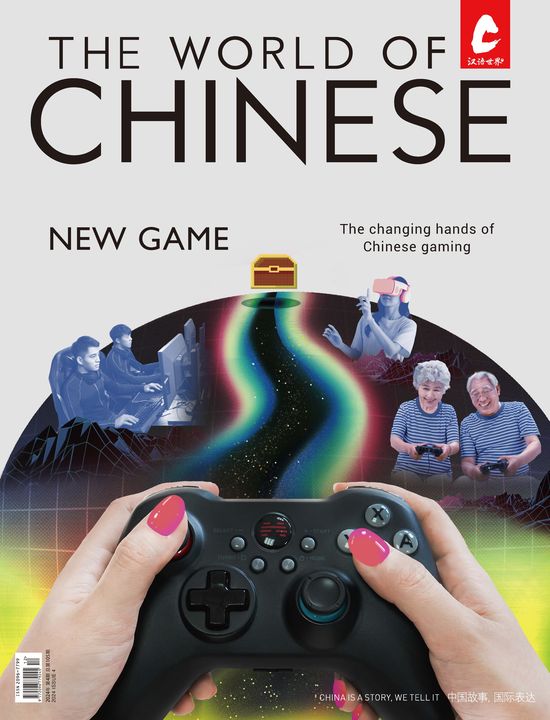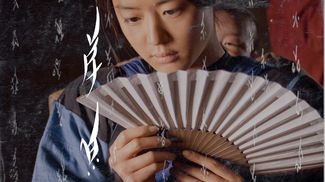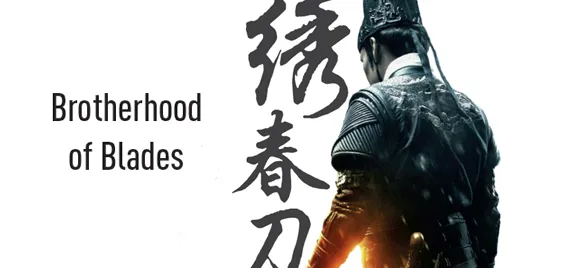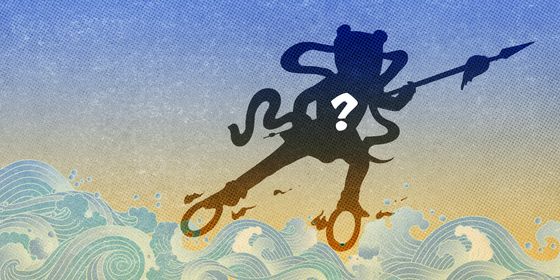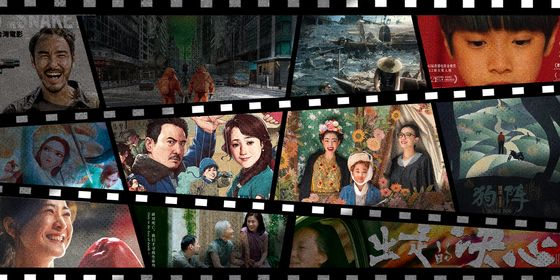Chinese modern version of Three Musketeers
Martial arts are, by nature, a fantastic sport in both the reality and imagination of the public—the aspiration to kick higher, faster, and stronger matched by stories and imagery of an ancient China where chi blasts demolish entire temples and wandering warriors fly across the sky in acts of derring-do with the flick of a finger. While the martial arts have always played a central role in Chinese society as entertainment, they also exist as cautionary tales of an ever-changing world in which shifting alliances and tides of fate can turn a heroic warrior into a villain.
Brotherhood of Blades is a surprisingly refreshing modern take on a tragic sword opera that resonates with echoes of the Three Musketeers. Shot more like a steam punk overture than an over-the-top Hong Kong kick-flick, Brotherhood contains fewer of the eye-rolling elements of caricature that make some modern Chinese mainstream kung fu films harder to endure. Director Lu Yang shoots characters who are rather well-developed, making Brotherhood an interesting bridge between the steely and sometimes soporific screenplays by Zhang Yimou, the operatic caricatures of King Hu, and the early Shaw brothers.
Set in the late Ming Dynasty (1368– 1644), Brotherhood is led by veteran actors Chang Chen as Shen Lian, Li Dongxue as Jin Yichuan, and Wang Qianyuan as Lu Jianxing—three assassins of the Imperial court who are ordered to put down members of an alleged conspiratorial plot.
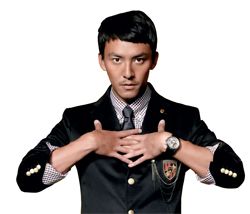 CHANG CHEN (张震)
CHANG CHEN (张震)
Born in 1976 in Taiwan, Chen Chang started his career at the age of 15 in A Brighter Summer Day (《牯岭街少年杀人事件》), a classic Taiwanese film dealing with juvenile crime and won Best Actor at the Golden Horse Awards. He also starred in Crouching Tiger, Hidden Dragon (《卧虎藏龙》), and was awarded Best Actor in a Foreign Language Film from the Osaka Asian Film Festival for starring in The Go Master (《吴清源》).
Shen: There is no way we can get this done on our own.
Nǐ xiǎng píng zánmen sān gèrén jiù bǎ zhè shì bànle ma?
你想凭咱们三个人就把这事办了吗?
Lu: With us three getting the mission, a lot of people in the government are getting jealous, and Zhang Ying is not happy either. He may have placed moles among our men. If he sabotages our mission, even our lives will be jeopardized.
Zhè chāishì luò zài zánmen xiōngdì shēnshang, yámén li yǐjīng yǒu hěnduō rén yǎnhóng, bǎi hù dàrén yě bù gāoxìng, nánbǎo zánmen de rén méiyǒu tā de zhuāngzi, yàoshi huàile zánmen de shì, kǒngpà huíqù lián mìng dōu bǎobuzhùle.
这差事落在咱们兄弟身上,衙门里已经有很多人眼红,百户大人也不高兴,难保咱们的人没有他的桩子,要是坏了咱们的事,恐怕回去连命都保不住了。
Shen: Are you concerned that we are not getting credit for this one?
Nǐ bùshì pà gōngláo bèi biérén gěi qiǎngle ba?
你不是怕功劳被别人给抢了吧?
Lu: Brother, aren’t you fed up with this life? We have no money or connections, and all we need is an opportunity, an opportunity for us to get on top.
Xiōngdì, zhè wōnáng rìzi nǐ hái méiguò gòu ma? Zán méi yínzi méi lù, kào de jiùshì jīhuì, jīhuì láile jiē zhùle, jiù néng fānshēn.
兄弟,这窝囊日子你还没过够吗?咱没银子没路,靠的就是机会,机会来了接住了,就能翻身。
As they continue to hunt down these enemies of the state, the three friends begin to realize the fictitious nature of the enemy they seek and furthermore the equally nefarious plot to usurp power in which they are ensnared.
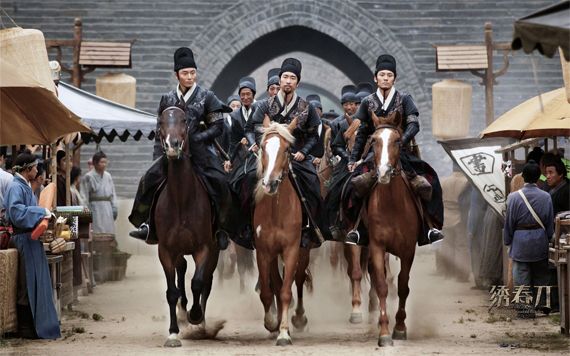
In one respect, Brotherhood makes the same overture that wuxia movies have made time and again: each protagonist’s undoing comes from an overabundance of virtue. The protagonists of wuxia novels (and later movies) often shared a similar set of ideals that typify the ideal Confucian gentleman: altruism, justice, and disregard for riches, among other values that characterize an ideal man. Generally speaking, these standards of conduct were considered unachievable and the wandering warriors of wuxia novels often embodied these values subjectively to a fault. For example, one warrior’s sense of justice might be twisted by the murder of his master in such a way that his desire for revenge would surpass all other traits. While they’re honest and good people, each assassin’s past contains a dark secret that ultimately becomes his downfall: a woman, a stolen identity and a pile of ill-gotten money. Their inability to deviate from their sworn adherence to honesty and chivalry, or the mistakes of their past becomes their undoing. In the face of unscrupulously Machiavellian politicians, often who are willing to kill their own kin in order to usurp power and fame, their skills in combat and their virtue becomes their undoing.
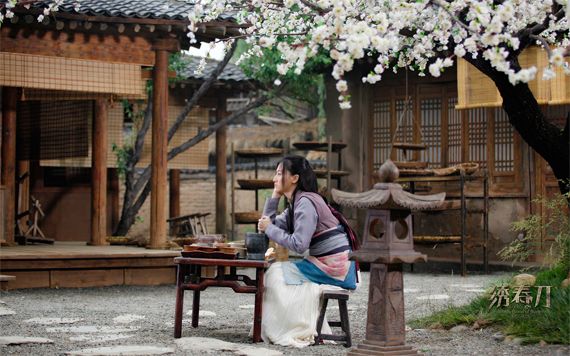
Wei: If we make a deal, I’ll tell you where the money is, and you can tell your boss the mission is over. Make up your mind quickly, otherwise your two friends won’t last long.
Zuòle zhè bǐ mǎimài, wǒ jiù gàosù nǐ qián zài nǎ’er, nǐ ná huíqù jiù kěyǐ jiāochāi. Kuài ná gè zhǔyì, wǎnle, nǐ nà liǎ xiōngdì kě jiù bǎobuzhùle.
做了这笔买卖,我就告诉你钱在哪儿,你拿回去就可以交差。快拿个主意,晚了,你那俩兄弟可就保不住了。
[Another assassin jumps at Wei, and Shen pins him to the floor]
Shen: Who sent you?
Shuí pài nǐ lái de?
谁派你来的?
Wei: He is nothing but a pawn, just like you.
Tā zhǐshì gè qízǐ, gēn nǐ yīyàng.
他只是个棋子,跟你一样。
While the characters’ back stories are entertaining (though somewhat enervated by overly-conventional development of their roles by gender, particularly around women) the most unconventional aspect of Brotherhood is the concealed political intrigue that draws the protagonists ultimately towards their untimely demise. Fate remains a central theme of Chinese wuxia novels; the brawlers of jianghu, the fictional world of wuxia novels, are often drawn in different directions by these mysterious forces of destiny. Central to that theme is a warrior’s acceptance of their fate; their destiny determines whether their virtuosity is helpful or harmful to them in the end. In Brotherhood, the cutthroat political tension of aristocratic politics fills in for destiny; Ni Yuan plays Zhao Jingzhong, a Ming Dynasty noble who seeks to eliminate loyal courtesans to his father by labeling them for disembowelment as followers of a fictitious subversive organization; all done in order to usurp power for himself, through his position as the head of the royal police. In this sense, Brotherhood is a strangely dystopian vision of Ming dynasty internal politics that’s almost satirically relevant to the modern condition. Zhao seeks to use the three brothers as blunt force instruments to do his evil bidding, ultimately pinning the crime on them. Though they uncover the betrayal to happen, in the end, each of the three brothers in arms succumbs to the conspiratorial maneuvers of the elites, each for blindly adhering to the rules of their virtue—chivalry, honor, and justice.
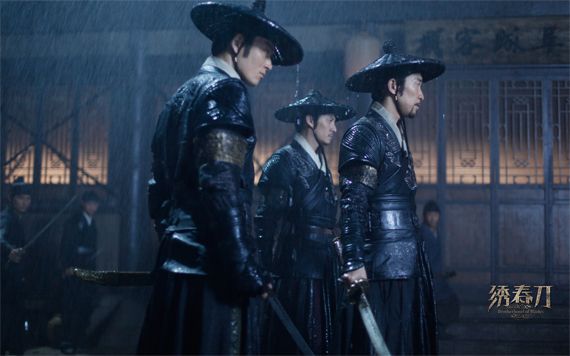
It’s an entertaining film— there’s plenty of wince-inducing limb-severing and blood, melodrama, and plenty of puppy love. It’s a highly enjoyable tragedy, with three pretty protagonists albeit strong actors. The most unbearable parts of the film consist of the meager portrayal by headliner Liu Shishi who plays Zhou Miaotong, a high-end whore of the royal court, who whispers her way across the screen in a headache-inducing monotone more fit for a deathbed portrayal than a sexy lady of the night.
Entertainment value aside, Brotherhood of Blades actually comes forward rather honestly about what it brings to the table: it’s a tragedy with flying swords, stalwart heroes, damsels in distress and a strong cast, to boot.
